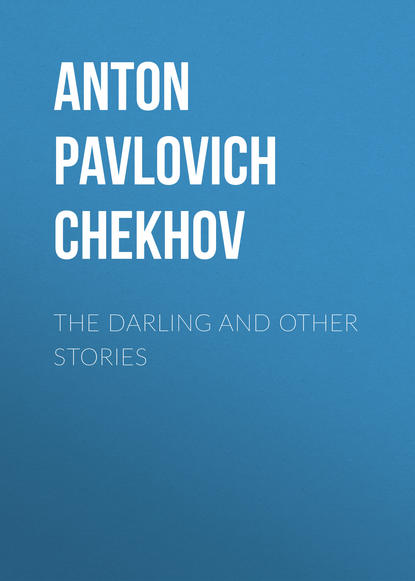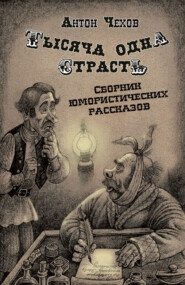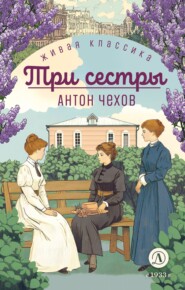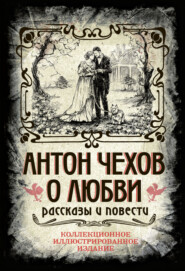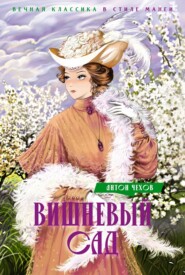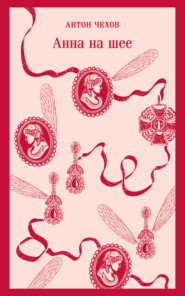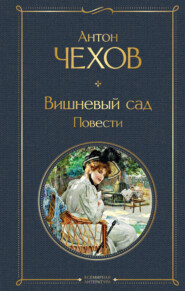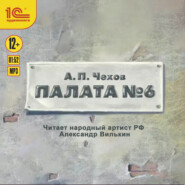По всем вопросам обращайтесь на: info@litportal.ru
(©) 2003-2025.
✖
The Darling and Other Stories
Настройки чтения
Размер шрифта
Высота строк
Поля
"If poetry does not solve questions that seem so important," said Yartsev, "you should turn to works on technical subjects, criminal law, or finance, read scientific pamphlets. What need is there to discuss in 'Romeo and Juliet,' liberty of speech, or the disinfecting of prisons, instead of love, when you can find all that in special articles and textbooks?"
"That's pushing it to the extreme," Kostya interrupted. "We are not talking of giants like Shakespeare or Goethe; we are talking of the hundreds of talented mediocre writers, who would be infinitely more valuable if they would let love alone, and would employ themselves in spreading knowledge and humane ideas among the masses."
Kish, lisping and speaking a little through his nose, began telling the story of a novel he had lately been reading. He spoke circumstantially and without haste. Three minutes passed, then five, then ten, and no one could make out what he was talking about, and his face grew more and more indifferent, and his eyes more and more blank.
"Kish, do be quick over it," Yulia Sergeyevna could not resist saying; "it's really agonizing!"
"Shut up, Kish!" Kostya shouted to him.
They all laughed, and Kish with them.
Fyodor came in. Flushing red in patches, he greeted them all in a nervous flurry, and led his brother away into the study. Of late he had taken to avoiding the company of more than one person at once.
"Let the young people laugh, while we speak from the heart in here," he said, settling himself in a deep arm-chair at a distance from the lamp. "It's a long time, my dear brother, since we've seen each other. How long is it since you were at the warehouse? I think it must be a week."
"Yes, there's nothing for me to do there. And I must confess that the old man wearies me."
"Of course, they could get on at the warehouse without you and me, but one must have some occupation. 'In the sweat of thy brow thou shalt eat bread,' as it is written. God loves work."
Pyotr brought in a glass of tea on a tray. Fyodor drank it without sugar, and asked for more. He drank a great deal of tea, and could get through as many as ten glasses in the evening.
"I tell you what, brother," he said, getting up and going to his brother. "Laying aside philosophic subtleties, you must get elected on to the town council, and little by little we will get you on to the local Board, and then to be an alderman. And as time goes on – you are a clever man and well-educated-you will be noticed in Petersburg and asked to go there-active men on the provincial assemblies and town councils are all the fashion there now-and before you are fifty you'll be a privy councillor, and have a ribbon across your shoulders."
Laptev made no answer; he knew that all this-being a privy councillor and having a ribbon over his shoulder-was what Fyodor desired for himself, and he did not know what to say.
The brothers sat still and said nothing. Fyodor opened his watch and for a long, long time gazed into it with strained attention, as though he wanted to detect the motion of the hand, and the expression of his face struck Laptev as strange.
They were summoned to supper. Laptev went into the dining-room, while Fyodor remained in the study. The argument was over and Yartsev was speaking in the tones of a professor giving a lecture:
"Owing to differences of climate, of energy, of tastes, of age, equality among men is physically impossible. But civilised man can make this inequality innocuous, as he has already done with bogs and bears. A learned man succeeded in making a cat, a mouse, a falcon, a sparrow, all eat out of one plate; and education, one must hope, will do the same thing with men. Life continually progresses, civilisation makes enormous advances before our eyes, and obviously a time will come when we shall think, for instance, the present condition of the factory population as absurd as we now do the state of serfdom, in which girls were exchanged for dogs."
"That won't be for a long while, a very long while," said Kostya, with a laugh, "not till Rothschild thinks his cellars full of gold absurd, and till then the workers may bend their backs and die of hunger. No; that's not it. We mustn't wait for it; we must struggle for it. Do you suppose because the cat eats out of the same saucer as the mouse-do you suppose that she is influenced by a sense of conscious intelligence? Not a bit of it! She's made to do it by force."
"Fyodor and I are rich; our father's a capitalist, a millionaire. You will have to struggle with us," said Laptev, rubbing his forehead with his hand. "Struggle with me is an idea I cannot grasp. I am rich, but what has money given me so far? What has this power given me? In what way am I happier than you? My childhood was slavery, and money did not save me from the birch. When Nina was ill and died, my money did not help her. If people don't care for me, I can't make them like me if I spend a hundred million."
"But you can do a great deal of good," said Kish.
"Good, indeed! You spoke to me yesterday of a mathematical man who is looking for a job. Believe me, I can do as little for him as you can. I can give money, but that's not what he wants-I asked a well-known musician to help a poor violinist, and this is what he answered: 'You apply to me just because you are not a musician yourself.' In the same way I say to you that you apply for help to me so confidently because you've never been in the position of a rich man."
"Why you bring in the comparison with a well-known musician I don't understand!" said Yulia Sergeyevna, and she flushed crimson. "What has the well-known musician to do with it!"
Her face was quivering with hatred, and she dropped her eyes to conceal the feeling. And not only her husband, but all the men sitting at the table, knew what the look in her face meant.
"What has the well-known musician got to do with it?" she said slowly. "Why, nothing's easier than helping some one poor."
Silence followed. Pyotr handed the woodcock, but they all refused it, and ate nothing but salad. Laptev did not remember what he had said, but it was clear to him that it was not his words that were hateful, but the fact of his meddling in the conversation at all.
After supper he went into his study; intently, with a beating heart, expecting further humiliation, he listened to what was going on in the hall. An argument had sprung up there again. Then Yartsev sat down to the piano and played a sentimental song. He was a man of varied accomplishments; he could play and sing, and even perform conjuring tricks.
"You may please yourselves, my friends, but I'm not going to stay at home," said Yulia. "We must go somewhere."
They decided to drive out of town, and sent Kish to the merchant's club to order a three-horse sledge. They did not ask Laptev to go with them because he did not usually join these expeditions, and because his brother was sitting with him; but he took it to mean that his society bored them, and that he was not wanted in their light-hearted youthful company. And his vexation, his bitter feeling, was so intense that he almost shed tears. He was positively glad that he was treated so ungraciously, that he was scorned, that he was a stupid, dull husband, a money-bag; and it seemed to him, that he would have been even more glad if his wife were to deceive him that night with his best friend, and were afterwards to acknowledge it, looking at him with hatred… He was jealous on her account of their student friends, of actors, of singers, of Yartsev, even of casual acquaintances; and now he had a passionate longing for her really to be unfaithful to him. He longed to find her in another man's arms, and to be rid of this nightmare forever. Fyodor was drinking tea, gulping it noisily. But he, too, got up to go.
"Our old father must have got cataract," he said, as he put on his fur coat. "His sight has become very poor."
Laptev put on his coat, too, and went out. After seeing his brother part of the way home, he took a sledge and drove to Yar's.
"And this is family happiness!" he said, jeering at himself. "This is love!"
His teeth were chattering, and he did not know if it were jealousy or something else. He walked about near the tables; listened to a comic singer in the hall. He had not a single phrase ready if he should meet his own party; and he felt sure beforehand that if he met his wife, he would only smile pitifully and not cleverly, and that every one would understand what feeling had induced him to come here. He was bewildered by the electric light, the loud music, the smell of powder, and the fact that the ladies he met looked at him. He stood at the doors trying to see and to hear what was going on in the private rooms, and it seemed to him that he was somehow playing a mean, contemptible part on a level with the comic singers and those ladies. Then he went to Strelna, but he found none of his circle there, either; and only when on the way home he was again driving up to Yar's, a three-horse sledge noisily overtook him. The driver was drunk and shouting, and he could hear Yartsev laughing: "Ha, ha, ha!"
Laptev returned home between three and four. Yulia Sergeyevna was in bed. Noticing that she was not asleep, he went up to her and said sharply:
"I understand your repulsion, your hatred, but you might spare me before other people; you might conceal your feelings."
She got up and sat on the bed with her legs dangling. Her eyes looked big and black in the lamplight.
"I beg your pardon," she said.
He could not utter a single word from excitement and the trembling of his whole body; he stood facing her and was dumb. She trembled, too, and sat with the air of a criminal waiting for explanations.
"How I suffer!" he said at last, and he clutched his head. "I'm in hell, and I'm out of my mind."
"And do you suppose it's easy for me?" she asked, with a quiver in her voice. "God alone knows what I go through."
"You've been my wife for six months, but you haven't a spark of love for me in your heart. There's no hope, not one ray of light! Why did you marry me?" Laptev went on with despair. "Why? What demon thrust you into my arms? What did you hope for? What did you want?"
She looked at him with terror, as though she were afraid he would kill her.
"Did I attract you? Did you like me?" he went on, gasping for breath. "No. Then what? What? Tell me what?" he cried. "Oh, the cursed money! The cursed money!"
"I swear to God, no!" she cried, and she crossed herself. She seemed to shrink under the insult, and for the first time he heard her crying. "I swear to God, no!" she repeated. "I didn't think about your money; I didn't want it. I simply thought I should do wrong if I refused you. I was afraid of spoiling your life and mine. And now I am suffering for my mistake. I'm suffering unbearably!"
She sobbed bitterly, and he saw that she was hurt; and not knowing what to say, dropped down on the carpet before her.
"That's enough; that's enough," he muttered. "I insulted you because I love you madly." He suddenly kissed her foot and passionately hugged it. "If only a spark of love," he muttered. "Come, lie to me; tell me a lie! Don't say it's a mistake!."
But she went on crying, and he felt that she was only enduring his caresses as an inevitable consequence of her mistake. And the foot he had kissed she drew under her like a bird. He felt sorry for her.
She got into bed and covered her head over; he undressed and got into bed, too. In the morning they both felt confused and did not know what to talk about, and he even fancied she walked unsteadily on the foot he had kissed.
Before dinner Panaurov came to say good-bye. Yulia had an irresistible desire to go to her own home; it would be nice, she thought, to go away and have a rest from married life, from the embarrassment and the continual consciousness that she had done wrong. It was decided at dinner that she should set off with Panaurov, and stay with her father for two or three weeks until she was tired of it.
XI
She travelled with Panaurov in a reserved compartment; he had on his head an astrachan cap of peculiar shape.
"Yes, Petersburg did not satisfy me," he said, drawling, with a sigh. "They promise much, but nothing definite. Yes, my dear girl. I have been a Justice of the Peace, a member of the local Board, chairman of the Board of Magistrates, and finally councillor of the provincial administration. I think I have served my country and have earned the right to receive attention; but-would you believe it? – I can never succeed in wringing from the authorities a post in another town.."





